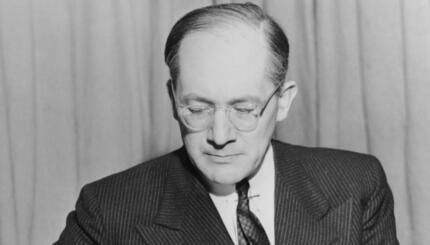It was a day like any other. I was absorbed in the details of my life, answering an overflowing stack of emails and worrying about trivial things, when the phone rang.
“We’re done translating Grandpa’s notes,” said my dad. “Would you, by some chance, be willing to go over them and turn them into a book?”
“Of course!” I replied right away. It sounded like no more than a thorough editing job. It struck me that my dad was surprised by my quick reply.
He sent the notes over. Grandpa Srulik spent a couple of months writing about his life. Then, my brother and father translated his notes from Russian to English.
I printed the translation and read over the notes in minutes; ten pages to summarize the life of a man who had had suffered enough heartache to fill a thousand lifetimes. As I read, I recalled him speaking about his life. I could see his muscles tense at some particularly difficult parts of his story. Reading other sections, I could hear him let out a hearty laugh as he tried to lighten the load on both the listener and himself by finding bits of humor in his infinitely painful life.
Yet, without knowing my grandpa, or at least having heard his story firsthand, these notes were not enough; without him to personally bring them to life, the words lay flat on the page. I couldn’t leave it at that. That’s when I understood what I had signed up for, and why my dad was so surprised by my quick reply. Yet, I was certainly not about to change my mind. This may take a while, maybe as long as three months, but I am going to do it, I thought.
I spent many hours talking with Grandpa, trying to get as much information as possible. This was no easy task. Grandpa didn’t like talking about his past. More often than not, he would simply reply, “I already wrote about that, go look at my notes.” I had to keep the conversations brief, and omit some questions altogether, so as not to upset him. Through these unofficial interviews, I learned much more about my grandpa’s life than I thought there was to know.
Grandpa’s original notes had only a few sentences devoted to his life before the war. I felt that this wasn’t enough. I spent many months working on the early part of his memoir, familiarizing the reader with his warm, loving family of origin, and showing what was normal for him before the Nazi occupation.
The following section, detailing Srulik’s initial escape from the Nazis, was more difficult to write. It was hard to identify with horrors of such proportion. But after many conversations with Grandpa, I was finally content with that part of the book.
Then, it was time to write about the worst of it: the Nazi ghetto. I spent hours staring at an empty screen, not able to type as much as a single word. After many failed attempts to continue writing, I was close to giving up altogether. Did I bite off more than I could chew? Who am I to write about a tragedy this large? I hadn’t wrote a word in three months.
Guilt kept eating away at me. Unsure how to proceed, I decided to turn to others’ memoirs. There I was, reading
Maus
, Art Spiegelman’s heartfelt comic about his dad’s experience in the Holocaust, and in its pages I saw the same fears that I was dealing with. “Some part of me doesn’t want to draw or think about Auschwitz,” writes Spiegelman, “I can’t visualize it clearly, and I can’t begin to imagine what it felt like.”
Realizing that I was not the only one struggling to relay to the reader such horrific events gave me strength to carry on. I buckled down and wrote a paragraph. By the time that paragraph was over, so was my ability to continue writing for the evening. I wrote the third part of the book literally one paragraph a day.
I then quickly put together the fourth, and final, part of the book, about Grandpa’s final escape and his two years hiding in the forests. The writing was done. I couldn’t believe it.
By the time the book was written, edited, illustrated, and published, three and half years had passed. This project called on all of my critical, creative, and emotional capacities, and became one of the most important and personally significant projects I’d ever done.
Writing about the Holocaust is hard. Forget writing—even reading about it is hard. Although I wrote my Grandpa’s memoir, and read every word in it countless times, some parts still bring me to tears. Even today, there are sections that I prefer to skip when I leaf through the book.
Yet, despite how difficult it is, it is crucial that we record this dark chapter in our history. We, the children and grandchildren of Holocaust survivors, have a big responsibility before us. It is our duty to pass on the stories of our loves ones. It might be hard to appreciate the importance of our work today – but too soon, the written word will be the only thing left to transmit their memories, and protect the integrity of this dark part in our history.
The Visiting Scribes series was produced by the Jewish Book Council‘s blog, The Prosen People.
The Jewish world is full of debates. Get the latest in MyJewishLearning’s weekly blogs newsletter.


